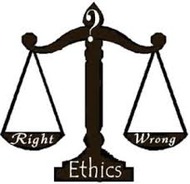The Role of the Corporate Board (Part 1)
(View Complete Item Description)Richard Levy, chairman of Varian Medical Systems, talks with Jim Balassone, executive-in-residence at the Markkula Center for Applied Ethics at Santa Clara University about what makes an effective board. The board's job is to look after the interests of shareholders, oversee financial performance and compliance, weigh in on strategy, understand risks, and evaluate, compensate and hire and fire the CEO and other senior managers. Effective boards have to understand the traditional compliance and fiduciary responsibilities. But beyond that, the board has to add value, to bring a different perspective that managers don't have. For this reason, boards should be diverse. A corporation needs both a heart and a soul. In a person, the heart is responsible for day to day survival, but that's not enough. People need to have meaning or soul. Companies are similar. They need to make money but they also need to serve the common good. The board needs to make sure someone is looking after the company's soul.
Material Type: Lecture




















